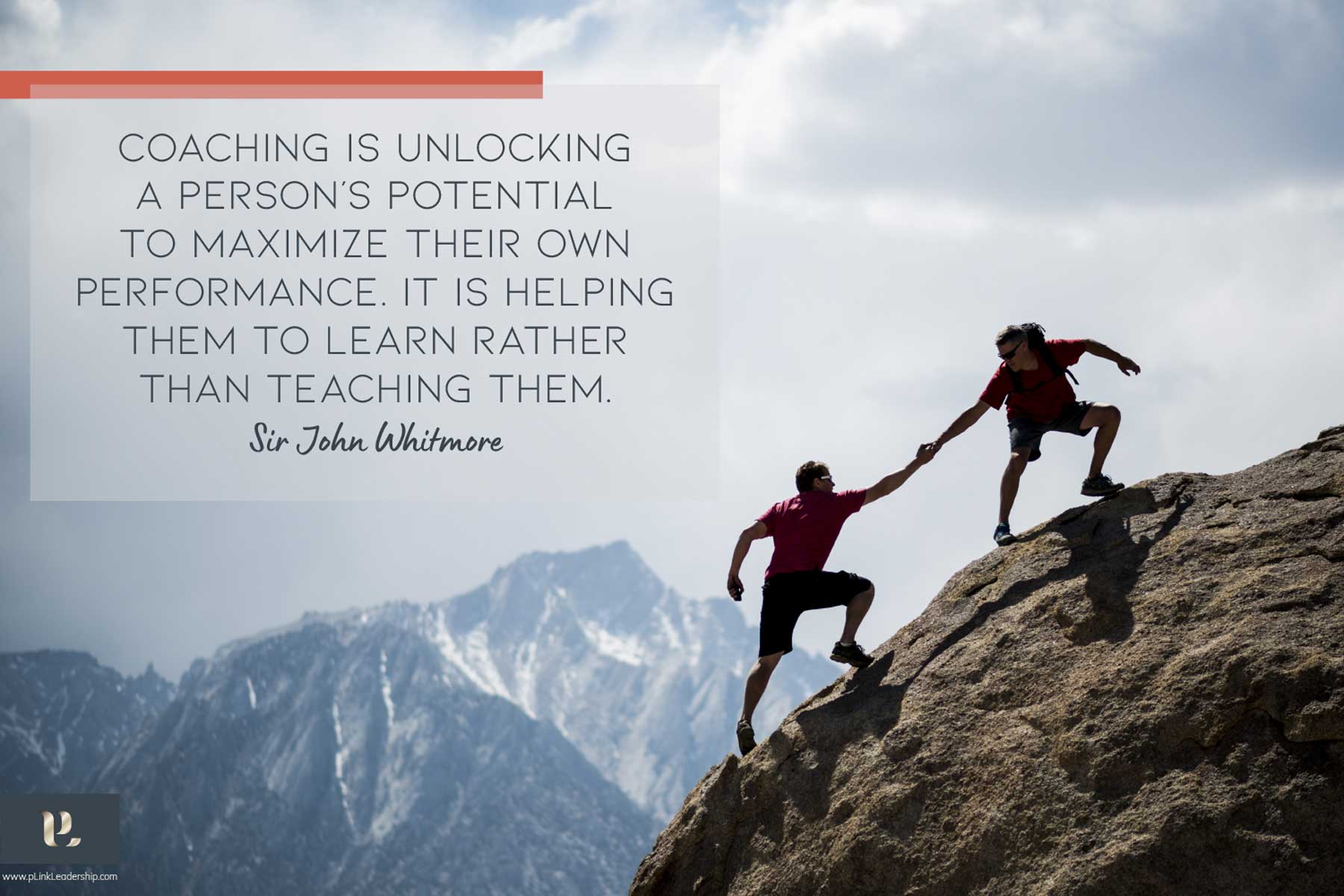“Helping people create more value on their own represents one of the highest forms of respect.“
John Y. Shook
“I don’t have time to coach my staff – we are all too busy. They need answers and direction.” If you are a leader or manager, you may have been in that same situation or even have said those same words. You may believe this to be true. But giving direction doesn’t necessarily allow people to grow and learn.
Today’s business environment is indeed characterized by complexity, change, and uncertainty. It is fast-paced. Developing your staff and team is fundamental to getting the best work out of everyone, while also improving satisfaction at work. Research shows that the ability of leaders to effectively coach is linked with improved performance, better business outcomes, and increased revenue. Coaching creates awareness, accountability, trust, and capacity, which enables innovation, creativity, resilience, and accelerated growth. Coaching doesn’t really take that much more time. What it takes is skill, practice, and a Coaching Mindset.
Leaders often feel the internal and external pressure and responsibility of developing others, because a leader’s single most important job is human development – your own growth, and the growth of the people you lead. You may have been asking yourself: Am I solving problems? Do I have the right answers? Am I managing well? Am I in over my head?
Having a mindset of a coach allows you to step out of that role of having all of the answers, doing it yourself – and going home exhausted! How about a shift to this: Am I asking the right questions? Am I listening well? Am I encouraging my team to bring ideas, try new things, and grow their skills?
In surveys conducted jointly by the Human Capital Institute (HCI) and the International Coach Federation (ICF), almost half of new leaders report that they want responsibility for coaching and developing others (44%) and they want to engage and inspire others (41%). Yet only 36% of organizations offer coach-specific training to new leaders. Businesses will benefit from investing in coaching skills. And not just when performance is lacking – those days are behind us. Coaching helps high performers, new leaders, and seasoned teams. “Organizations with strong coaching cultures indicate recent revenues above that of their industry peer group (46% compared to 39% of other responding organizations) and report higher employee engagement (61% and 53%, respectively),” according to the HCI/ICF report.
What does it look like in action? You are coaching when you take a non-directive approach by asking evocative questions and listening reflectively as the individual works on solving their own problems.
Start by asking questions, rather than giving solutions:
- “What is the issue?” ̶ Creates opportunities for defining the problem through an open question.
- “Why is this happening now?” ̶ Increases awareness and creates focus.
- “What have you already thought of as a solution? What do you think needs to happen?” ̶ Allows for brainstorming of ideas and develops strategic thinking. It also gives you a chance to validate a creative solution when it’s presented.
- “What would a successful outcome look or feel like?” ̶ Helps define and envision the goal.
- “What would get in the way of a successful outcome?” ̶ Anticipates obstacles or barriers.
- “What do you think your next steps will be?” ̶ Encourages autonomy and decision making.
- “What do you think our next steps should be?” – Creates partnership and support.
Yes, you do need to hire, train, and supervise your employees. Then, rather than managing them, try coaching. You will gain much more by offering support and creative learning opportunities, so that your staff can develop their skills. When people are allowed and encouraged to come up with their own solutions, they are more motivated and committed. Actively being involved in giving input and being trusted to find solutions assist in developing self-confidence and self-efficacy.
What if you shifted your leadership focus and energy from “solving problems” to helping other people think about how they want to solve their own problems?
